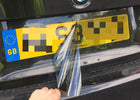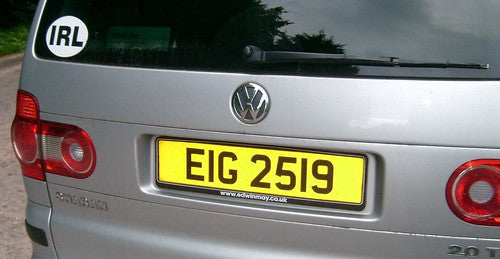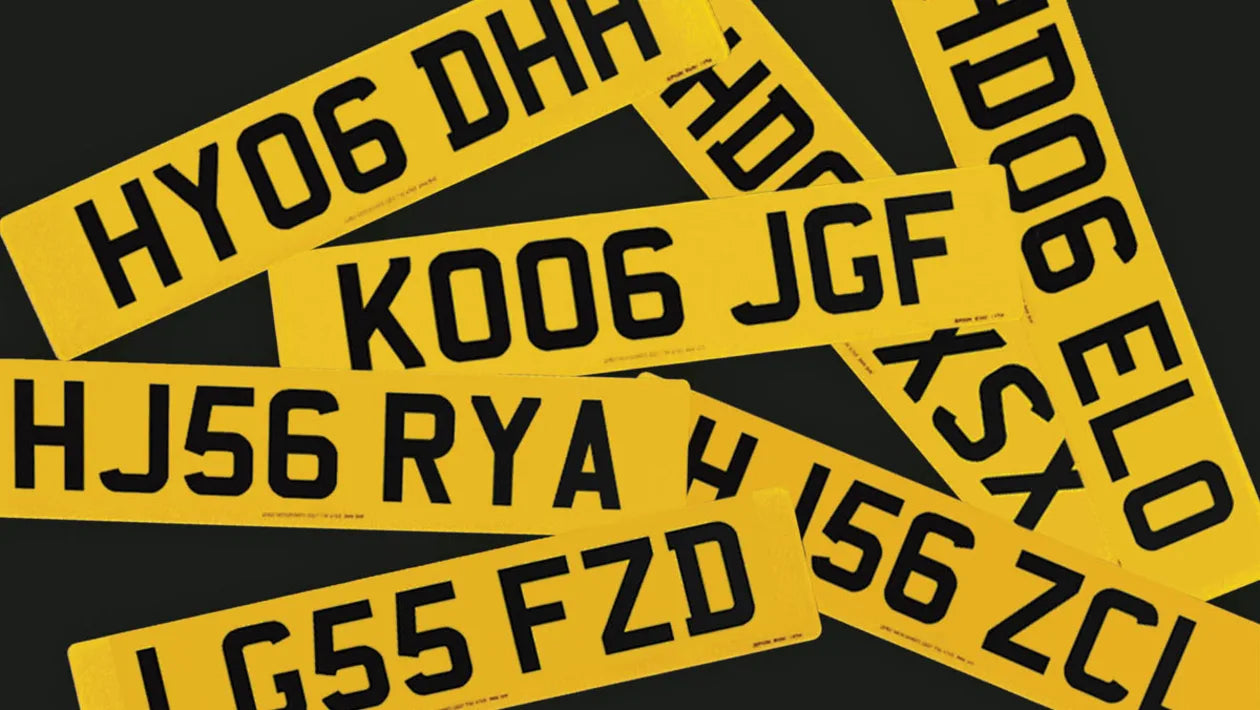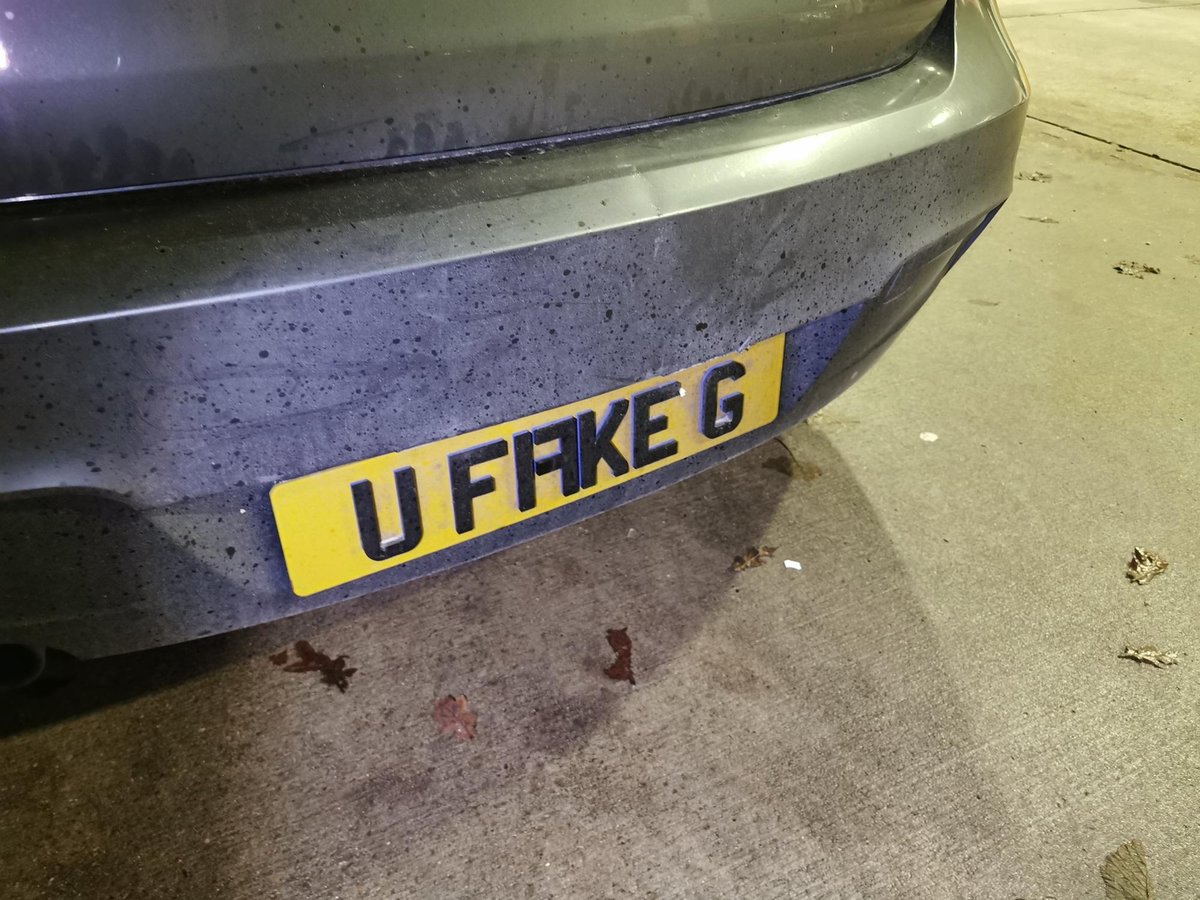
Are Stealth Number Plates Road Legal?
, by Reece Dennis, 10 min reading time

, by Reece Dennis, 10 min reading time
Are stealth number plates road legal? Many motorists have wondered about the legality of these mysterious license plates that appear invisible to speed cameras and CCTV. With the rise in popularity of stealth number plates, it's important to understand their legal status and potential consequences.
Stealth number plates, also known as ghost number plates or anti-photo license plates, are designed to reflect light in a way that makes them difficult to detect by speed cameras and traffic enforcement systems. While they may seem like a clever way to evade detection, using stealth number plates can have serious legal implications.
In many jurisdictions, the use of stealth number plates is considered illegal and can result in hefty fines, penalty points on your license, or even the suspension of your driving privileges. Law enforcement agencies view these plates as an attempt to obstruct justice and evade traffic laws.
It's important to note that traffic safety is a shared responsibility, and using stealth number plates undermines this principle. So before considering the allure of invisible plates, be sure to check the legalities in your area. Remember, it's always best to stay on the right side of the law and ensure road safety for everyone.
Stealth number plates, also known as ghost plates or anti-photo license plates, are a type of license plate that is designed to be difficult to detect by speed cameras and other traffic enforcement systems. These plates are engineered to reflect light in a way that makes the plate numbers and characters appear distorted or completely invisible to cameras.
The technology behind stealth number plates typically involves the use of specialized reflective materials, coatings, or patterns that disrupt the camera's ability to capture a clear image of the plate. Some plates may even use LED lights or other electronic components to actively interfere with the camera's sensors, further obscuring the plate's visibility.
Proponents of stealth number plates often claim that they are a way to protect one's privacy and avoid the potential for unfair or erroneous traffic violations. However, the legality of these plates is a subject of ongoing debate, with many jurisdictions considering their use to be a form of obstruction or evasion of traffic laws.

One of the primary advantages of using stealth number plates is the ability to avoid detection by speed cameras and other automated traffic enforcement systems. This can be particularly appealing to drivers who are concerned about the accuracy of these systems or who want to avoid the potential consequences of speeding tickets or other violations.
Additionally, some individuals may view the use of stealth number plates as a way to protect their privacy and prevent their vehicle's movements from being tracked or monitored by various surveillance systems. In an age where data privacy is a growing concern, the idea of an "invisible" license plate can be seen as a way to maintain a degree of anonymity on the road.
Furthermore, some drivers may use stealth number plates as a form of artistic expression or customization, viewing them as a way to personalize their vehicle and stand out from the crowd. The novelty and perceived "cool factor" of these plates can be a draw for some motorists.
The legality of stealth number plates is a complex and often contentious issue, with laws and regulations varying significantly between different jurisdictions. In many countries and states, the use of these plates is considered to be illegal, as they are seen as an attempt to evade traffic laws and obstruct justice.
For example, in the United Kingdom, the use of any license plate that is designed to be obscured or altered in a way that prevents it from being easily read is strictly prohibited. Drivers caught using such plates can face hefty fines, penalty points on their license, and even the possibility of having their vehicle seized.
Similarly, in the United States, the legality of stealth number plates is a highly contentious issue, with some states outright banning their use, while others have more ambiguous or lenient laws. In general, any attempt to conceal or alter a license plate in a way that impedes its visibility or readability is likely to be considered a violation of traffic regulations.
To understand the legality of stealth number plates, it's important to first understand the legal requirements for standard license plates. In most jurisdictions, there are specific regulations and standards that dictate the size, font, color, and placement of license plate numbers and characters.
These requirements are in place to ensure that license plates are easily visible and readable, both by law enforcement and by other drivers on the road. This is crucial for maintaining public safety and facilitating the effective enforcement of traffic laws.
Typically, license plates must be made of a reflective material that allows the plate numbers and characters to be clearly visible, even in low-light conditions. The font and size of the plate numbers must also meet specific guidelines to ensure legibility. Any attempt to alter or obscure these elements is generally considered a violation of the law.
The use of stealth number plates can have serious legal consequences, depending on the jurisdiction and the specific laws and regulations in place. In many cases, the use of these plates is considered a criminal offense, and drivers caught using them can face a range of penalties.
These penalties may include hefty fines, the suspension or revocation of the driver's license, and even the seizure of the vehicle. In some cases, the use of stealth number plates may also result in the driver being charged with more serious offenses, such as obstruction of justice or attempting to evade law enforcement.
Moreover, the use of stealth number plates can also have broader implications for the driver's insurance coverage and their ability to register and operate their vehicle legally. Insurance companies may refuse to cover claims or may even cancel the driver's policy if they discover that the vehicle was equipped with illegal number plates.
Given the potential legal consequences of using stealth number plates, it's crucial for drivers to ensure that their license plates are fully compliant with all applicable laws and regulations. This typically involves ensuring that the plates meet the required standards for size, font, color, and reflectivity, and that they are properly affixed to the vehicle.
In many jurisdictions, there are specific guidelines and requirements for the materials and design of license plates, and it's important for drivers to familiarize themselves with these rules. Some areas may also require the plates to be registered with the appropriate authorities, or to be issued by a licensed vendor.
If you're unsure about the legality of your license plates, it's always best to consult with a qualified legal professional or the relevant government agency responsible for vehicle registration and traffic enforcement. By ensuring that your plates are fully compliant, you can avoid the potential legal and financial consequences of using illegal or obscured number plates.
Automatic Number Plate Recognition (ANPR) technology is a critical tool used by law enforcement agencies and traffic management systems to monitor and enforce traffic laws. ANPR systems use cameras and specialized software to capture and analyze the license plate numbers of passing vehicles, allowing for the identification and tracking of vehicles in real-time.
These systems play a crucial role in a wide range of law enforcement and traffic management activities, including the detection of stolen vehicles, the enforcement of speeding and toll violations, and the monitoring of traffic patterns and congestion. ANPR technology is also used to support investigations and to provide evidence in legal proceedings.
Given the importance of ANPR in maintaining road safety and enforcing traffic laws, the use of stealth number plates can be seen as a direct challenge to these systems. By obstructing the ability of ANPR cameras to accurately read and identify license plates, drivers using stealth plates are undermining the effectiveness of these critical tools, which can have far-reaching consequences for public safety and the overall functioning of the transportation system.
In conclusion, the use of stealth number plates is a complex and often contentious issue, with significant legal and practical implications. While some drivers may be drawn to the perceived advantages of these plates, such as avoiding detection by speed cameras or maintaining a degree of privacy, the reality is that the use of stealth plates is generally considered to be illegal in most jurisdictions.
The legal requirements for license plates are in place to ensure the effective enforcement of traffic laws and to maintain public safety on the roads. By using stealth number plates, drivers are undermining these important principles and exposing themselves to the risk of hefty fines, license suspensions, and other serious consequences.
Ultimately, the decision to use stealth number plates is one that each driver must carefully consider, weighing the potential benefits against the significant legal and practical risks. For those who value road safety and the rule of law, the responsible choice is to ensure that their license plates are fully compliant with all applicable regulations and standards.
While the use of stealth number plates is generally not recommended due to the legal risks involved, there are still options available for drivers who wish to personalize or customize their license plates in a legal and responsible manner. One such option is to purchase custom plates from reputable vendors that specialize in this service.
Custom license plates can be a great way to express your personality, interests, or affiliations, while still ensuring that your vehicle is fully compliant with all traffic laws and regulations. These plates are typically produced using high-quality materials and designs that meet the required standards for size, font, color, and reflectivity, ensuring that they are easily readable and visible to law enforcement and other drivers on the road.
By working with a trusted custom plate provider, you can enjoy the benefits of a personalized license plate without having to worry about the legal consequences of using an illegal or obscured plate. This can be a great way to stand out on the road while still prioritizing road safety and responsible driving.




